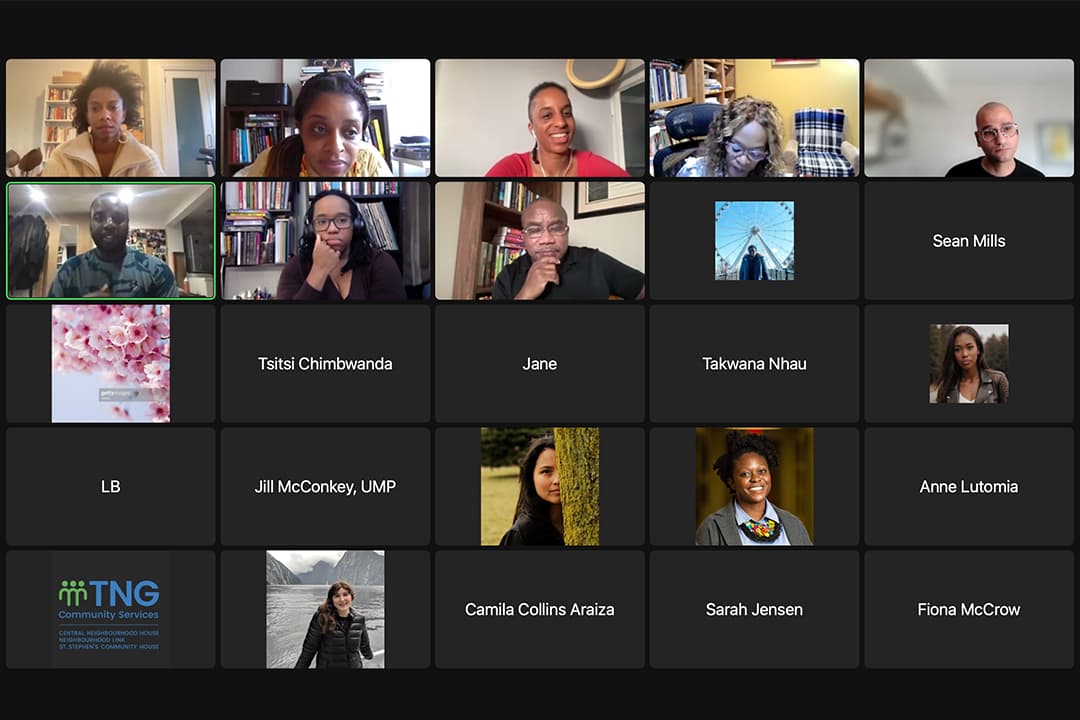“Journalism is often called the voice of the people, but how can it be the voice of the people when [those] reporting and creating stories are not an accurate representation of our world?”
Writer and lawyer Hadiya Roderique posed this question to the crowd gathered on Zoom for a virtual roundtable held by U of T’s Department of History on February 9. At the event, Black historians and journalists discussed the underrepresentation of Black people in Canadian journalism and the importance of reporting that touches on a variety of stories relevant to Black experiences and communities.
A 2022 survey conducted by the Canadian Association of Journalists found that approximately eight in 10 Canadian newsrooms had no Black or Indigenous journalists on staff. Acknowledging the underrepresentation of Black people in journalism, Roderique said, “In the absence of an inclusive environment and the absence of hearing [Black] stories, the quality of journalism suffers.”
Cheryl Thompson, a researcher and associate professor of performance at Toronto Metropolitan University, discussed the importance of making space for Black lineage and knowledge in current journalism. She spoke about how her grandmother’s advice to “listen” has influenced her writing to reflect her community’s needs.
Thompson said that, due to their underrepresentation in mainstream newsrooms, “[many] young Black people are hesitant to get into journalism.” Responding to this worry, she stressed that, rather than focusing on the reception their journalism might get, it’s more important for young Black writers to make sure they know their history and then “go out and do the thing.”
Freelance journalist Neil Armstrong told the crowd how his career in journalism gave him the opportunity to be an activist. Armstrong explained that growing up, he wrote letters to The Gleaner — a daily newspaper published in Jamaica — that discussed various matters affecting his community. This experience showed him that he “had a voice that could be used to amplify the issues affecting [his] family and friends locally,” beginning his interest in journalism.
Throughout his more than 20-year journalism career, Armstrong has continued to use his platform to advocate for Black Canadians, maintaining that “Black media should be a voice for the voiceless.” Armstrong highlighted the intersection of historians and journalists, telling the crowd that newspapers give historians insight into societies of the past, and, in conjunction, journalists use history to aid their understanding of current events.
Roderique expresses that Black pain and tragedy are exploited in the media. “Our joy is rare because I think the mainstream media would rather focus on Black pain,” she said.
Multiple authors have discussed how social media and companies commercialize violence against Black people, specifically police violence, such as by aligning themselves with the Black Lives Matter movement without taking meaningful action. In a 2023 US survey, 63 per cent of Black people said that news they see about Black people tends to be more negative than that about other ethnic or racialized groups.
“We need to be seen as full people; with the joy and the pain,” Roderique concluded.



No comments to display.